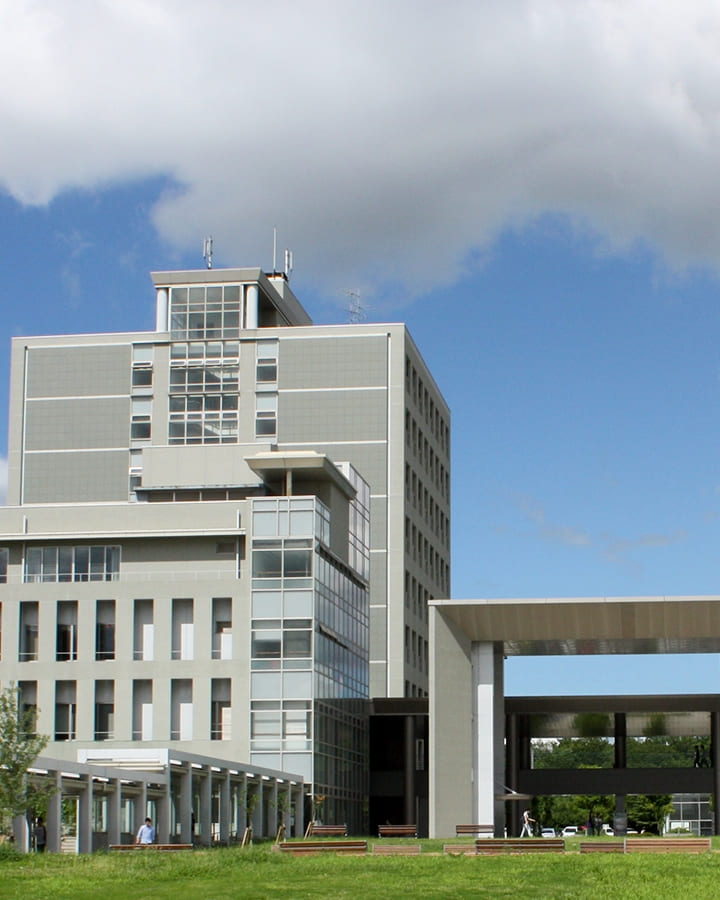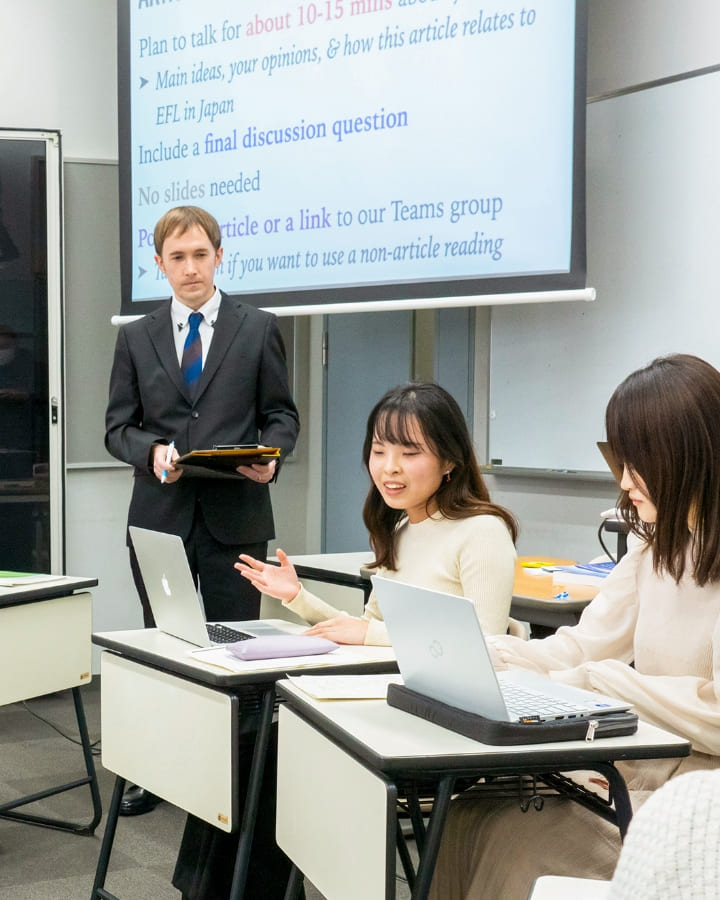
Understanding different languages and cultures.
It is the power to live together in unpredictable times.
Have you ever heard of the terms “modern” and “postmodern”? Well, in the modern era, feudalism was dismantled, and a civil society based on capitalism and democracy was established. This was followed by a period of confrontation between the two camps of capitalism and socialism, and then by globalization under unregulated capitalism. In terms of ideology and culture, it is said that we have entered a postmodern era. So, how should we describe the current era in which we live?
We're facing some tough challenges, like global warming, nuclear accidents, new viruses, and political and economic instability caused by wars. It's hard to know what the consequences of these problems will be, but I believe that by understanding the changing times, we can work together to create a society where different ideas and opinions can coexist peacefully. We will nurture human resources who can deeply understand different languages and cultures and can cooperate with others.
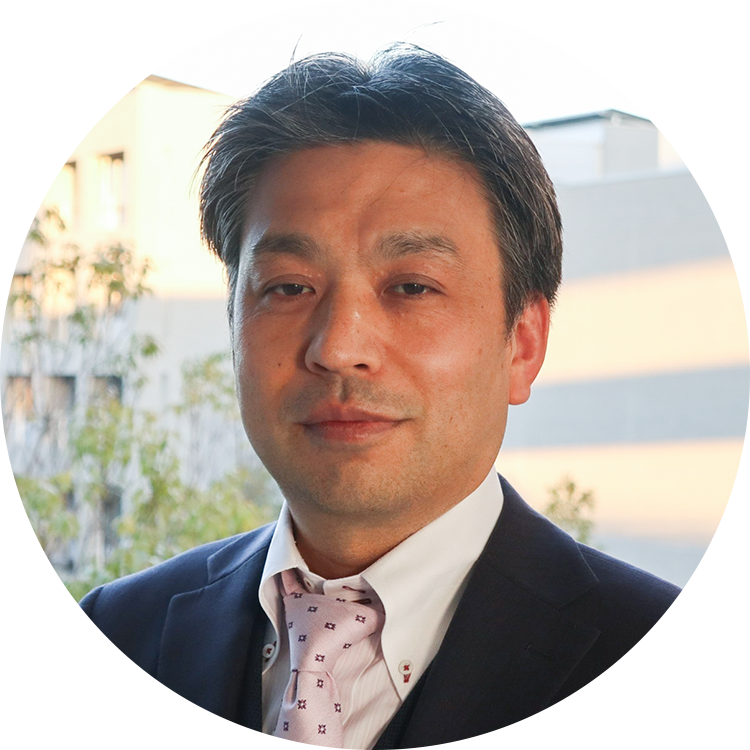
Shinji Nakata
Greetings from the Dean
The Faculty of Foreign Studies is one of the oldest faculties in Japan. There are a total of five such faculties in Japan, with two located in two national universities, three at public universities, and dozens at private universities (as of March 2025). The foundation of the Faculty of Foreign Studies is specialized education and research in a variety of foreign languages. It has always been the fundamental educational goal of the Faculty of Foreign Studies to nurture professionals and educated people with advanced foreign language skills. Another important characteristic of the Faculty of Foreign Studies is its liberal arts approach, which spans many fields of study to provide students with a deep understanding of the cultures and societies of various language areas.
In order to understand the diversity of cultures and societies around the world and to bridge the gap between different values, it is of great importance to be able to speak English as well as other foreign languages. Language is not only a tool for communication, but also an expression of the content and background of communication. What language would you choose to study?
A new educational program of our faculty, which was launched in the 2023 academic year, will enhance foreign language education, which is the vertical axis of learning, by adding Portuguese to the languages already being taught (English, French, Spanish, German, and Chinese). At the same time, in terms of the academic approach that forms the horizontal axis, we will introduce a system of common undergraduate specialized courses that will support the free formation of expertise by students. In addition, with the recognition that today's local communities are becoming increasingly diverse and multilingual, taking advantage of the fact that our faculty has the largest number of language majors among public universities, a multilingual society course has been established as a specialized course for third and fourth-year students.
A distinguishing feature of the Faculty of Foreign Studies is the opportunity for in-depth study in one's own areas of interest. Our curriculum encompasses specialized foreign language education, including instruction in the world's major languages. Additionally, students can develop expertise in a broad array of humanities and social sciences, fostering a comprehensive understanding of different cultures and intellectual traditions. Moreover, by participating in exchange programs with partner universities abroad, students have the opportunity to immerse themselves in diverse language and cultural environments, acquiring not only language skills but also a comprehensive understanding of the host culture.
The Faculty of Foreign Studies at our university recognizes its role as a public institution situated in Aichi Prefecture, a region undergoing substantial internationalization and globalization. The faculty aims to cultivate human resources that possess a global outlook, individuals who can contribute to the growingly diverse and multilingual international and local communities.
Department of British & American Studies
We will use our advanced English operational skills to open the door to a future connected to the world.

Since its establishment in 1966, the Department of English & American Studies has nurtured graduates with practical English language skills and a deep knowledge of the culture and society of English-speaking countries, and has produced graduates who are active in various fields. Today, while maintaining this tradition, we are striving to nurture global human resources who can respond to the advanced information age.
Currently, the Department of English & American Studies offers specialized and systematic study of the society, politics, economy, history, literature, culture, English language and communication systems, and English language education in the English-speaking world, with a focus on the United Kingdom and the United States. All courses with English titles are taught in English, and some lectures, including research courses, are also given in English, allowing students to experience an English immersion environment while still in Japan.
From the 2023 academic year, the curriculum will be changed with a focus on English language courses in order to nurture students who aim to further improve their English language skills. In addition to English conversation skills, we will further nurture students' ability to communicate the results of their studies in English.
In addition, the EIC (English for Intercultural Communication) course will be changed to a special program in which a certificate of completion will be awarded to those who have completed a certain number of courses and fulfilled language requirements. We will support the development of "sharp individuals" who can hone their English language skills as a tool for cross-cultural communication and make use of their English language abilities in the future.
Department of European Studies Division of French Studies
Starting from France, the social and cultural center of Europe, we look at the French-speaking world, which extends all over the world, including Africa.

France has been one of the centers of European culture and civilization since the Middle Ages. Today, it continues to contribute to the development of the international community as the world's fifth largest economy, leading the European Union along with Germany. French is the official language not only in France but also in Belgium, Switzerland, Canada, African countries, etc., and is used as a lingua franca in many international organizations such as the United Nations, and in various fields such as fashion and sports.
In fact, it is more widely used than English, especially in African countries that are expected to become the most politically and economically important in the world in the future. Turning to the relationship between France and Japan, in 2017, France's balance of direct investment in Japan was the third largest in the world, after the United States and the Netherlands. Conversely, some 490 Japanese companies have established some 740 offices in France, including 37 companies with 57 offices in Aichi Prefecture.In the French-speaking major, students aim to become experts in French in small classes. At the same time, students can also study the culture and society of French-speaking countries professionally in the "Language and Culture Course" and the "Society Course," and cultivate "truly global human resources" who are active on the international stage and also contribute to local communities.
Department of European Studies, Division of Iberian & Latin American Studies
Acquire practical Spanish and Portuguese language skills and specialized knowledge of Spanish and Portuguese speaking countries.
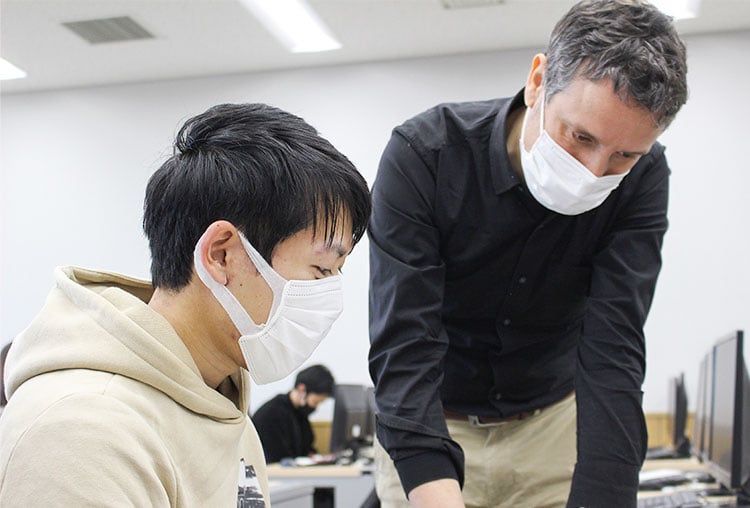
There are Spanish-speaking and Portuguese-speaking courses, and while each major language is studied separately, many subjects are studied together in both courses. Spanish and Portuguese are linguistically similar and have much in common in terms of history and culture, making them easy to understand each other. The world's Spanish-speaking population is approximately 500 million, and the Portuguese-speaking population is approximately 250 million.
In addition, there are more than 62 million Hispanics (Latin American immigrants and their descendants) in the United States. Brazil (with a population of approximately 220 million) has the world's largest Nikkei community, and approximately 280,000 people from Spanish- and Portuguese-speaking countries live in Japan (including 210,000 Brazilians). Aichi Prefecture has the largest number of people from these countries in Japan, and the importance of both languages, including the need for language support, is growing not only in the international community but also in local communities.
Department of European Studies Division of German Studies
Mastery of German, which has the largest number of native speakers in the EU Understanding of social issues common to Japan Global perspective that can contribute to “Kyousei”.

The Federal Republic of Germany is the fourth largest economy in the world, the largest in the EU, and one of Japan's major trading partners. It is also an important economic partner for Aichi Prefecture, especially in the automotive industry. There are many common issues between German-speaking countries and Japan, such as multicultural conviviality, environmental protection, energy policy (nuclear power plant issues), and an aging society with a declining birthrate.
In order to solve these issues, it is very important to learn about the realities of the German-speaking world. With more than 100 million native speakers, German is one of the 10 languages with the highest number of native speakers in the EU. German has the second highest number of learners after English, currently 17 million worldwide. German is an essential language for the study of German culture and society and for international communication. In the German-speaking major, we offer small-group instruction in German with fewer than 20 students per class. You can learn about German-speaking culture and society from various angles and contribute to "coexistence" in international and local communities from a global perspective.
Department of Chinese Studies
Students will acquire advanced Chinese language skills and analytical skills related to the Chinese-speaking world and other Asian regions.
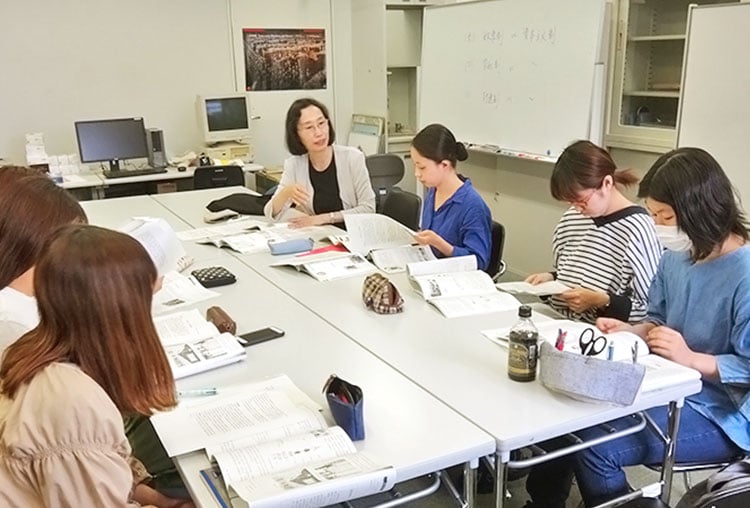
The 21st century is the era of Asia. Among these, the Chinese-speaking world, where the Chinese language is spoken, is one of the most economically developed regions in the world. Therefore, in order to be active on the Asian stage, it is necessary not only to be fluent in a foreign language, but also to have the ability to understand different cultures in the Chinese-speaking world and to make decisions from an international perspective.
In the second semester of the second year, a "Translation and Interpretation Course" is also offered, with required courses in business, tourism, medical care and welfare, as well as "Original Chinese" and "Special Lectures" by native speakers. From the third year onward, students belong to seminars and deepen their research on the Chinese-speaking world under the guidance of their academic advisors.
The Department of Chinese Studies focuses its research and education mainly on the Chinese-speaking countries and Asian regions based on the Chinese-speaking countries, and aims to nurture human resources who are able to demonstrate excellent cross-cultural understanding and international judgment in dealing with China and other Asian countries with which exchange with Japan will become increasingly active in the future.
Department of International & Cultural Studies
Focusing on Global Issues and Multicultural Conviviality

It is fair to say that global society is in the midst of chaos. While the dynamic movement of people and goods across national borders has become commonplace, "home-centric" trends and conflicting values have caused noticeable frictions in various political and economic arenas. Religious conflicts and ethnic conflicts continue to occur in various parts of the world.
The Department of International Relations aims to enable students to observe and analyze the world more broadly and deeply by observing the characteristics of individual nations and societies from a micro level while examining the relationships among them from a macro level.
A wide variety of classes are available for those who wish to think about the nature of relations among nations, focusing on politics, economics, and law, as well as for those who wish to think about the cultural background of nations and regions in terms of their ethnic composition, language, and culture.
While providing a rich English language education centered on multiple native English-speaking faculty members, the program also looks at various countries and regions of the world to nurture human resources who can Think globally, Act locally.
We aim to create a department where what you learn at university will be useful when you go out into the world and strive to solve problems.
